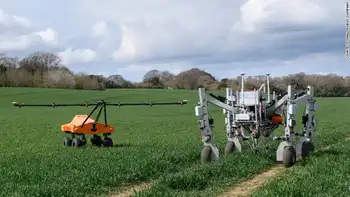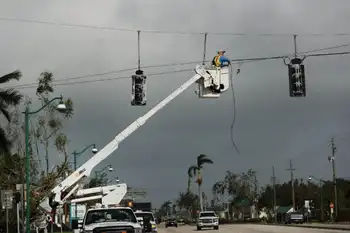Demand strains grid
EDMONTON, ALBERTA - Edmontonians are putting a strain on the province's electrical system by cranking up the heat and plugging in the Christmas lights.
Steve Sears, with Direct Energy, said Alberta was poised to set a record for energy consumption one night.
"All the big power consumers we have in our homes are probably going to be on," Sears said.
He and others are urging Albertans to conserve energy, warning there's a potential for power outages when demand spikes.
Sears suggested holding off on turning on the Christmas lights until after 8 p.m. or 9 p.m., and investing in energy-saving LED lights.
He also advised vehicle owners to plug their block heaters in before going to bed instead of when they get home, or putting a timer on that particular circuit.
Turning the thermostat down and wearing extra warm clothes around the house is also recommended.
Over a 24-hour period in August, Edmontonians drew 24,265.57 megawatts of power - an all-time high.
The previous record of 23,746.95 megawatts was set on January 29 this year, when the mercury sank to -32 C.
It wasn't expected to be nearly as cold as last night, with a forecasted high of -20 C, according to Environment Canada.
Today, the temperature is expected to climb into the minus-mid-teens.
EPCOR spokesman Tim leRiche said there were three power outages in Edmonton on December 14, but they were likely not related to the cold weather.
Meanwhile, Edmonton Transit express buses will continue to stop at non-express stops whenever possible, said Wes Brodhead, director of bus operations.
He said the policy will remain in place as long as the temperature is -20 C with the windchill.
"It might be for the rest of the year given some of the forecasts I've heard," Brodhead said.
"Hopefully we'll have a warming trend. We're concerned about people standing outside in the cold."
Related News

A robot is killing weeds by zapping them with electricity
LONDON - On a field in England, three robots have been given a mission: to find and zap weeds with electricity before planting seeds in the cleared soil.
The robots — named Tom, Dick and Harry — were developed by Small Robot Company to rid land of unwanted weeds with minimal use of chemicals and heavy machinery.
The startup has been working on its autonomous weed killers since 2017, and this April launched Tom, its first commercial robot which is now operational on three UK farms. The other robots are still in the prototype stage, undergoing testing.
Small Robot says robot Tom…




